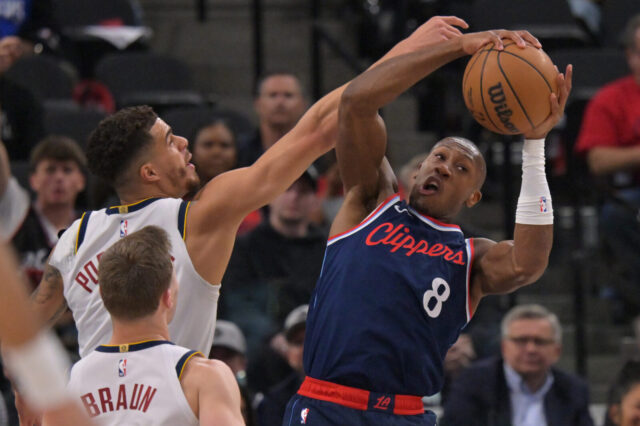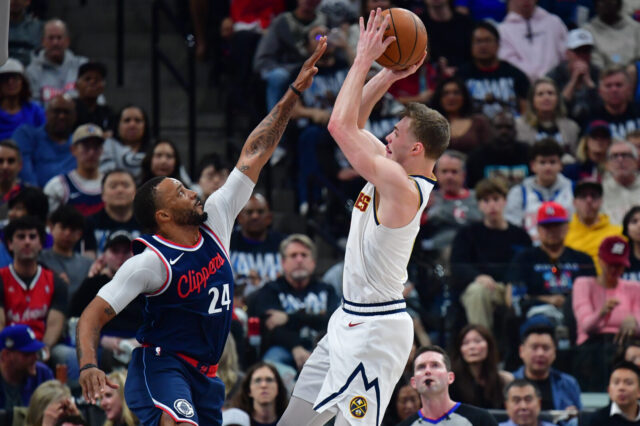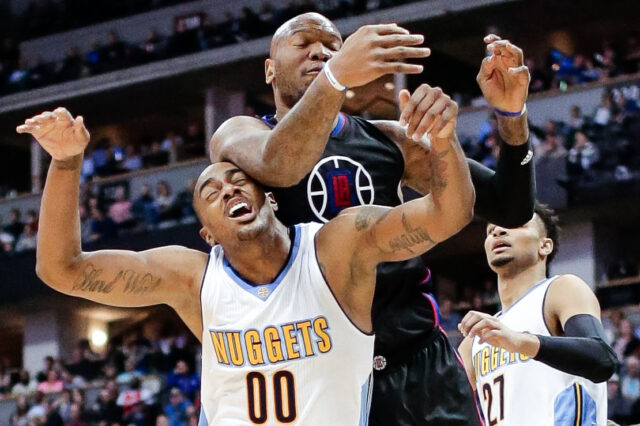Another NBA Draft lottery passes, and another opportunity is missed for the Denver Nuggets to jump into the top three of this year’s draft. Prospects like Markelle Fultz, Lonzo Ball, and Josh Jackson would provide an immense boost for the future of the Nuggets franchise, but alas, there looks to be no real way to move up that high without making questionable decisions.
To vent my frustrations lately, I have been listening to various podcasts about the draft to possibly hear about the Nuggets and their potential options this year. In my search, I came across a podcast by the name of The Basketball Analogy, headed up by Kevin Arnovitz of ESPN. He truly is a great basketball mind but has an even greater understanding of the ethical implications of the industry. Definitely check it out.
In one of the most recent episodes, he and Pablo Torre, another writer at ESPN, discussed NBA Draft reform and a potential way to improve it. The link to the podcast is right here, and it will be the basis of the discussion in this article.
Arnovitz kicks off the podcast by expressing displeasure that the NBA Draft even exists, as it conflicts with everything a free market economy stands for: a bunch of billionaires deciding whether a bunch of specialists will make money for them or somewhere else. The concept of a draft has been marketed as a fair solution for teams in smaller markets, forcing upon them young prospects at the top of the draft. This of course assumes that big market teams don’t make idiotic decisions, putting them at the top of the draft for multiple years in a row instead.
The Los Angeles Lakers, Philadelphia 76ers, and New York Knicks have averaged 22.2 wins per team over the course of the last three seasons, and because of this, each team has been in position to select quality talent at the top of the draft. Fast forward to this year, and the Lakers are picking second, the Sixers third, and the Knicks eighth. Between the three teams, they have drafted Julius Randle, D’Angelo Russell, Brandon Ingram, Joel Embiid, Jahlil Okafor, Ben Simmons and Kristaps Porzingis in the top seven selections since the 2014 draft. Those selections have had varying degrees of success, but when imagining each of those picks made by another organization, it’s easy to see each player having more success.
“What does the draft do? It rewards idiots. You can have absolutely no expertise, have a top five pick, and by virtue of all of the information that’s out there, do okay.” – Kevin Arnovitz
Now, Porzingis is rumored to be fed up with the management that selected him, and while things are looking up in Philly, the future of the Los Angeles Lakers may possibly tied to the success of Lonzo Ball.
The question is, why force these draft picks to play their first five to eight seasons with a franchise that selected them? In a free market economy, the most skilled individuals in their respective fields are afforded the pick of the litter for businesses that desire their skills. The same is said in NBA free agency, though only on the basis of when the first guaranteed contract runs out. Why aren’t Fultz or Ball or Jackson afforded the same opportunities? From a business standpoint, forcing players into these positions goes against the unwritten (and written) laws of the capitalist world. From a competitive standpoint, why force a young potential prodigy to play in the worst possible situation possible?
In his podcast, Arnovitz touches on the pros and cons of getting rid of the NBA Draft entirely. He believes that while some of the less competent franchises that are in turmoil wouldn’t like the idea, competent franchises would be all for the idea.
“I think those who have confidence in their talent evaluation and their ability to find undervalued assets lower in the draft…internationally…those are the executives that would support the abolition of the draft. Because what does the draft do? It rewards idiots. You can have absolutely no expertise, have a top five pick, and by virtue of all of the information that’s out there, do okay.”
-Kevin Arnovitz, The Basketball Analogy podcast
This is a profound quote, and it had me doing some research on the overall success rate of the draft. The draft is used as a way to balance talent in the NBA, so theoretically, most franchises should go through cycles of being good and being bad. After a team accumulates a certain number of top draft picks, they should spend subsequent years as a successful NBA team, correct?
Arnovitz and Torre continued to talk through some other sticking points, but it stands to reason, what would the offseason look like if the NBA didn’t field an a draft and instead allowed prospects to explore free agency? Here are five ramifications of no draft for the 2017 offseason:
The NBA Combine becomes mandatory for players to attend
Since college players all play at drastically different programs and varying levels of competition, there would have to be a single entity with the ability to showcase players in a concentrated environment. With teams needing assurance before spending tens of millions of dollars on a 19-year-old, the Combine is a great location to obtain as much information as possible.
There would not only be athletic testing, interviews, and medical evaluations, but also the ability to mingle with other players and potential employers in one location. Think of it as a gigantic career fair open to only students from Stanford University. These are some of the best possible options for NBA teams, and they want to show off why their NBA team is the best possible option. ESPN wants the NBA Draft Combine to grow in its viewership, and if the NBA wants to continue expanding its TV coverage options, then showing off drills and other events put on by specific NBA teams for select prospects would only draw more viewership and speculation for when free agency opens.
Max contract for rookie deal becomes 20% of the salary cap (or some large number)
This may seem very high for a rookie contract, an unproven player that could be a complete bust no matter the situation. The truth is, there are terrible contracts given out in free agency, regardless of how long a player has played in the NBA. Would the Los Angeles Lakers rather hand out a combined $134 million over four years to Timofey Mozgov and Luol Deng, or a combined $100 million over the same length to two or even three high quality draft prospects? What about the young Markelle Fultz this year? A bidding war up to max contract value for his services would earn him much more than he would if he was drafted first overall on a rookie scale deal.
| Year 1 | Year 2 | Year 3 | Year 4 | Total | |
|---|---|---|---|---|---|
| 2017-18 #1 overall pick | $5.86 million | $6.95 million | $8.12 million | $10.24 million | $31.17 million |
| Max Contract for “New” Rookie scale | $20.20 million | $21.11 million | $22.06 million | $23.05 million | $86.42 million |


